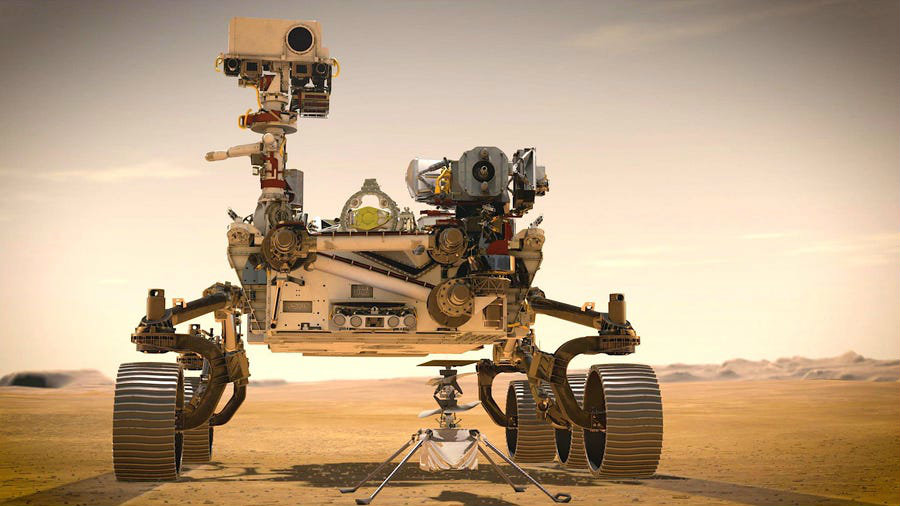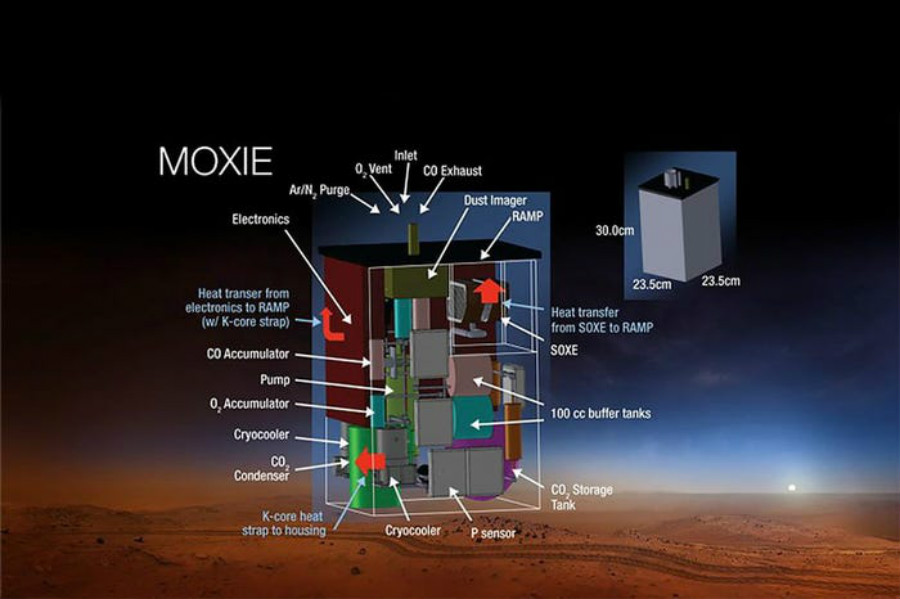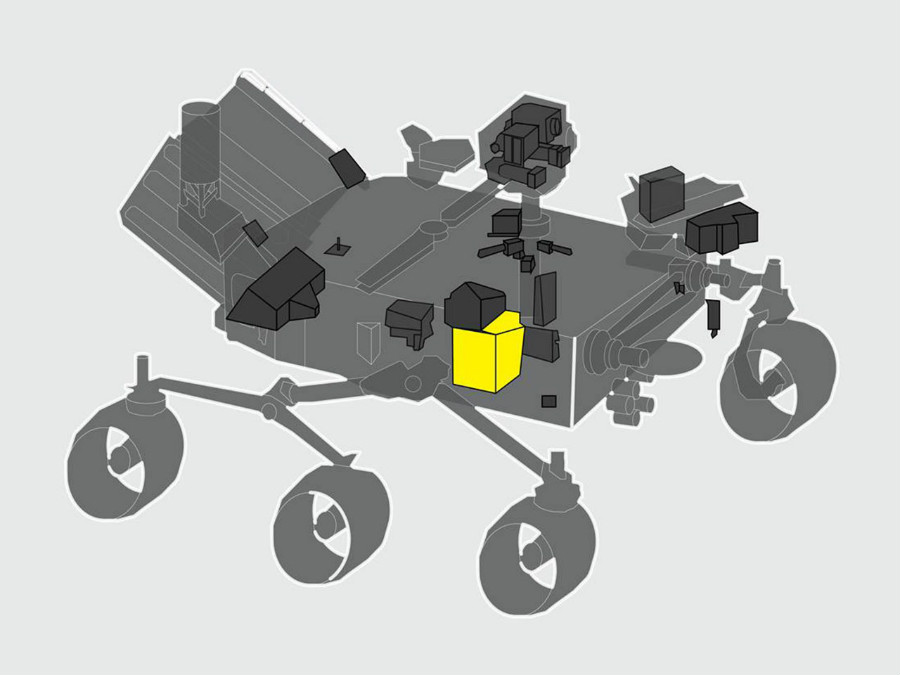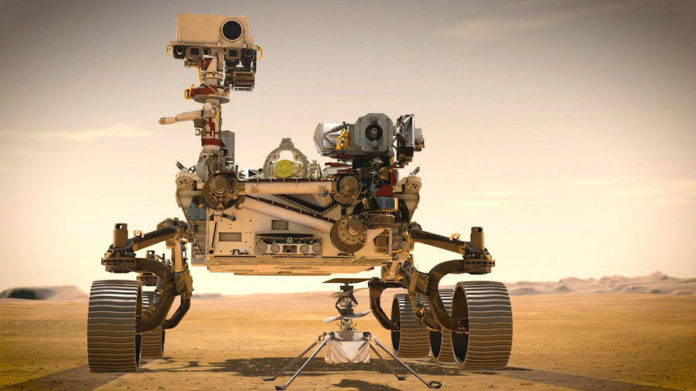
Credit: NASA/JPL-Caltech
NASA’s Perseverance rover started its journey to Mars on the 30th of July 2020. And by February 2021, NASA would have its most sophisticated explorer on Mars’ Jezero Crater. This also includes the Ingenuity Mars helicopter. Along with these two, there will be The Mars Oxygen In-Situ Resource Utilization Experiment, also known as MOXIE which has a very important job to do.
As NASA is planning on human missions to Mars, there have to be endurance tests completed. Having enough oxygen (O2) to breathe is one main requirement. And for the return journeys, O2 could be a great propellant for Rockets. As 95.32% of the air on Mars is Carbon dioxide (CO2), it would be efficient that there is a way to convert these CO2 molecules into O2. And MOXIE is planned to do just that!
About MOXIE

Battery included on Wikimedia Commons
Located inside the Perseverance rover, MOXIE weighs 6.41 kilograms on Mars. That is nearly ⅓ of the weight it has on Erath. It is built similar to a tree on earth, taking in CO2 and letting out O2. Being a test model, MOXIE is designed to produce O2 at a pace of 10 grams per hour. In one go, MOXIE would produce 1 hour of O2 production per experiment and it is scheduled throughout the mission.

Credit: NASA
First MOXIE would analyse for O2 purity, letting out 99.6% of O2. Then it would give out breathable O2 and Carbon monoxide (CO) back into Martian atmosphere. According to the researchers, the CO produced here would not be a problem as it would immediately bind to residual O2 and create CO2 again. If its function to be successful, future O2 generators on Mars would be about 100 times bigger than MOXIE and would store the producing O2 in tanks.
“When we send humans to Mars, we will want them to return safely, and to do that they need a rocket to lift off the planet. Liquid oxygen propellant is something we could make there and not have to bring with us. One idea would be to bring an empty oxygen tank and fill it up on Mars.” says Michael Hecht, principal investigator at MIT.

